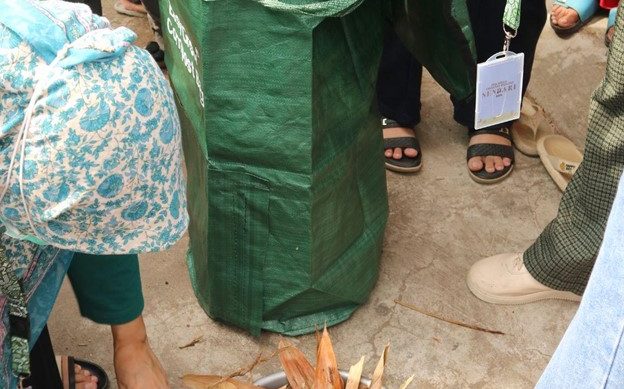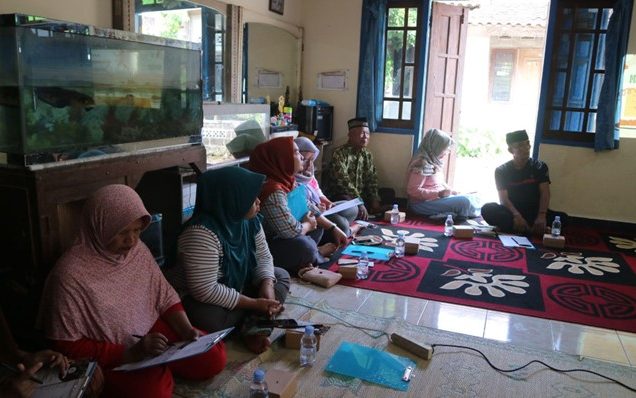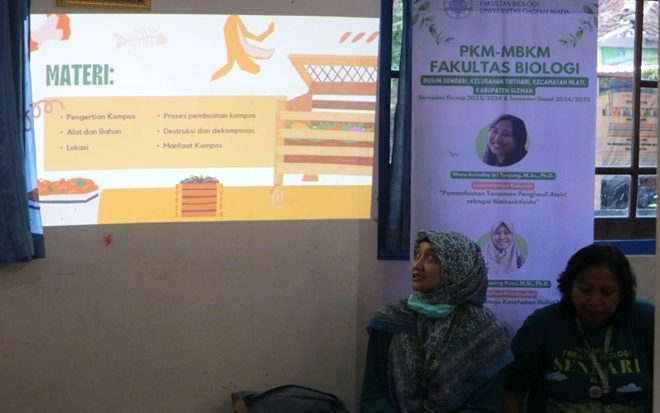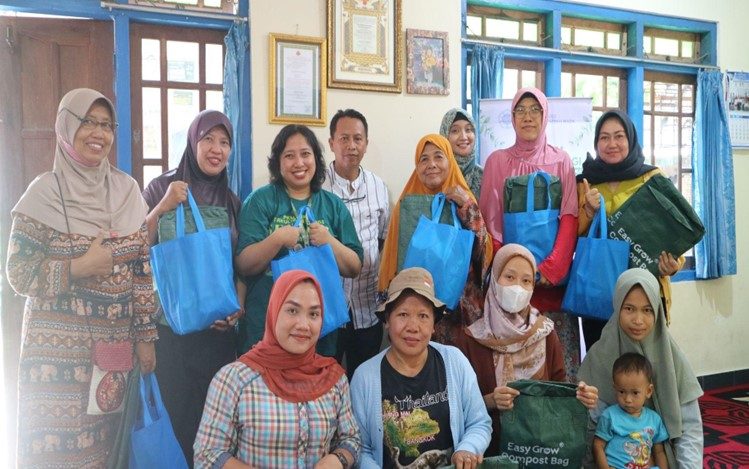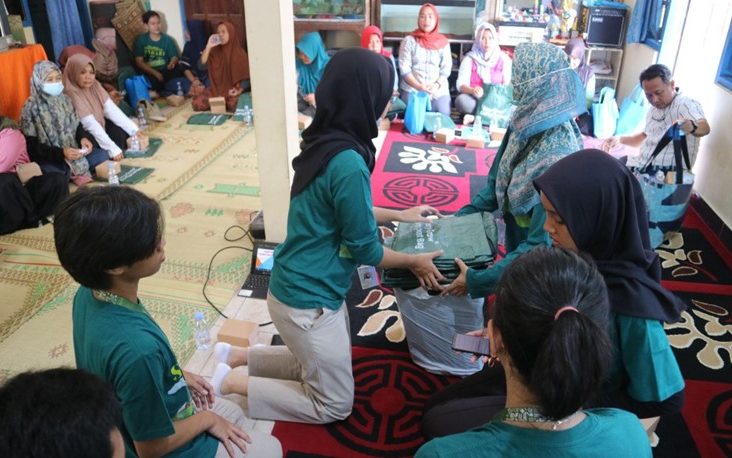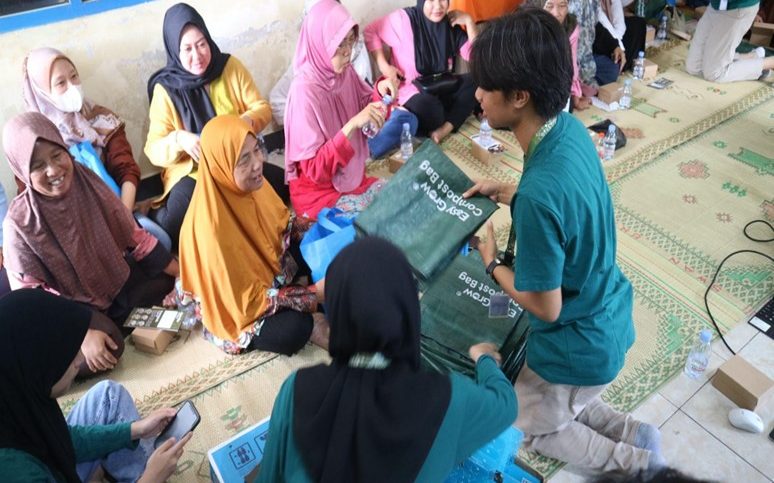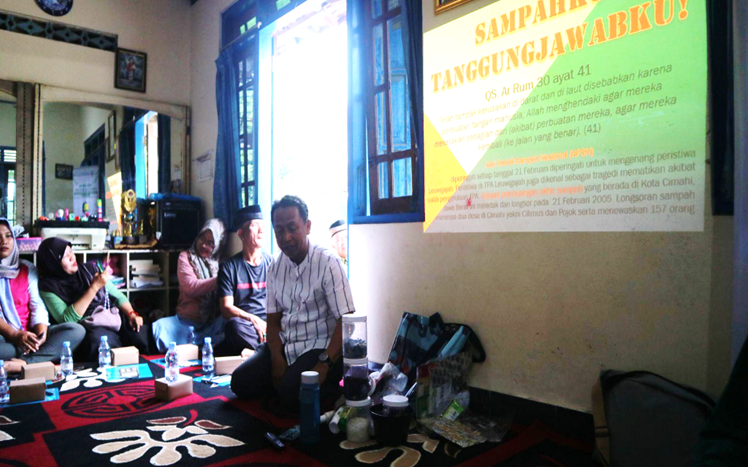Yogyakarta, May 26, 2024 – The Community Service Team of the Independent Learning Independent Campus (PkM MBKM) Faculty of Biology, Universitas Gadjah Mada (UGM) 2024, spearheaded by three lecturers—Woro Anindito Sri Tunjung, Ph.D., Wahyu Aristyaning Putri, Ph.D., and Novita Yustinadiar, M.Si.—along with 10 students, conducted the second program in a series of PkM-MBKM activities in Dusun Sendari. This program focused on composting and the introduction of waste banks, aiming to enhance the community’s awareness and skills in independently and sustainably managing waste. The activity took place at RT03, RW19, Dusun Sendari, Tirtoadi Village, Mlati District, Sleman, Yogyakarta Special Region, on Sunday, May 26, 2024.
The activity was attended by 27 residents, including the village head (Pak Sumarta), the village head’s wife, and the RT leader (Pak Djijana). The event began with a pre-test and a prayer. The first presentation was delivered by Novita Yustinadiar, S.Si., M.Si., who explained the techniques for making compost from household organic waste. In this session, residents were invited to directly practice making compost using materials readily available around them. All participants were given brochures containing composting instructions and compost bags to use for practicing composting at home.
Next, the introduction to the waste bank was presented by Mr Farid Fakhrudin from the Rukun Makmur Waste Bank. He explained the importance of sorting inorganic waste and the benefits of managing a waste bank and waste donation for family economics and the environment. The participants were provided with an understanding of how a waste bank operates, the correct methods for collecting waste, and how inorganic waste can be processed into economically valuable products.
The event concluded with a post-test and the distribution of door prizes to residents who actively participated. Door prizes were awarded to 10 lucky residents through a fishbowl lottery. It is hoped that this activity will provide the community with broader insights and help them adopt cleaner and healthier living patterns through proper waste management. This activity supports the Sustainable Development Goals (SDGs), specifically SDG 11 on sustainable cities and communities, SDG 13 on climate action, and SDG 15 on life on land.


